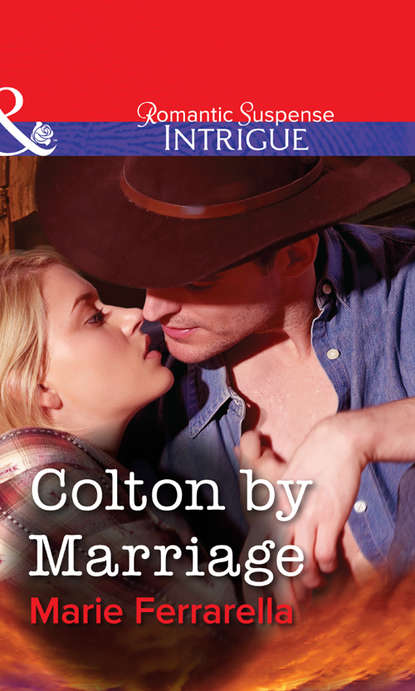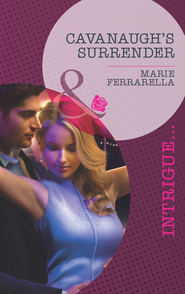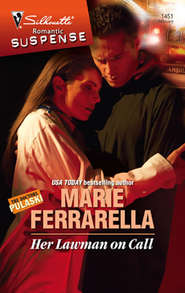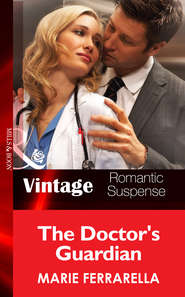По всем вопросам обращайтесь на: info@litportal.ru
(©) 2003-2025.
✖
Colton by Marriage
Автор
Год написания книги
2018
Настройки чтения
Размер шрифта
Высота строк
Поля
Donald weighed his options. He knew his wife was passionate about him not smoking, and she seemed to be on a personal crusade these days against his beloved cigars. With a loud sigh, Donald allowed the cigar to fall from his fingers, landing back in the trash. There were plenty more cigars in the house—and a few of them stashed in various out-of-the-way places. Places that Bonnie Gene hadn’t been able to find yet. He could wait.
The rear door opened and closed for a second time. All three Kelleys turned to see Linc walk in. He was accompanied by a blast of hot July air. It was like an oven outside. A hot, sticky, moist oven.
“I must have caught every red light from the hospital to the restaurant,” Linc complained, addressing his words to the world at large.
Bonnie Gene felt her daughter stiffen the moment she heard Linc’s voice. The reaction was not wasted on her. Her mother’s instincts instantly kicked in.
Releasing Susan, she approached her daughter’s self-appointed shadow. “Linc, I was wondering if you could do me a favor.”
It was no secret that Linc was eager to score any brownie points with the senior Kelleys that he could. “Anything, Mrs. Kelley.”
“The linen service forgot to send over five of our tablecloths. Be a dear and run over to Albert’s Linens and get them.” Taking the latest receipt and a note she’d hastily jotted down less than an hour ago, she handed both to Lincoln. “Nita at the service is already waiting for someone to come for them. Just show her these,” she instructed.
Lincoln glanced at the receipt and the note, looking somewhat torn about the assignment he’d been given. It was obvious that he’d hoped that whatever it was that Susan’s mother wanted done could be done on the premises and near Susan.
But then he nodded and promised, “I’ll be right back.” He looked at Susan, possibly hoping that she would offer to come with him, but she didn’t. With a suppressed sigh and a forced smile, he turned on his heel and walked out of the kitchen through the same door he’d come in.
Susan looked at her mother. It completely amazed her how the woman who could drive her so absolutely crazy when the subject of marriage and babies came up could still somehow be so very intuitive.
She flashed her mother a relieved smile. “Thanks, Mom.”
Bonnie Gene’s eyes crinkled as she smiled with pleasure. “That’s what I’m here for, honey. That’s what I’m here for.”
“Here for what?” Mystified, Donald looked first at his wife then at his daughter, trying to understand what had just happened. “And thanks for what?”
But rather than answer him, his wife and his daughter had gone off in completely opposite directions, leaving him to ponder his own questions as he scratched the thick, short white hair on his head. The action unintentionally drew his attention to the fact that his haircut, courtesy of his wife whom he insisted be the only one to cut his hair, was sadly lopsided. Again.
Though she’d been cutting his hair ever since they had gotten married all those years ago—originally out of necessity, now out of his need for a sense of tradition—Bonnie Gene had never managed to get the hang of cutting it evenly.
Donald didn’t mind. He rather liked the way the uneven haircut made him look. He thought it made him appear rakish. Like the bad boy he’d never had time to be. And because he was who he was, the owner of a national chain of restaurants, no one ever attempted to tell him any differently.
Glancing over his shoulder in the direction that his wife had gone—to the front of the restaurant, undoubtedly to rub elbows with the customers—Donald quickly dipped into the trash basket and retrieved his cigar for a second time. This time, he didn’t bother going through the motions of dusting it off. Instead, he just slipped it into his pants pocket.
With a satisfied smile, Donald assumed a deliberately innocent expression. Hands shoved into his pockets—his left protectively covering the cigar—he began to whistle as he walked toward the swinging double doors that led into the dining hall.
Life was good, he thought.
Chapter 3
The moment he’d realized that this time Boyd Arnold’s discovery wasn’t just a figment of his imagination, Wes had firmly sworn Boyd to secrecy. Knowing that Boyd had a tendency to run off at the mouth, words flowing as freely as the creek did in the winter after the first big snowstorm, he’d been forced to threaten the small-time rancher with jail time if he so much as breathed a word to anyone.
Boyd had appeared to be properly forewarned, his demeanor unusually solemn.
As for him, despite the fact that the words kept insisting on bubbling up in his throat and on his tongue, desperate for release, Wes hadn’t even shared the news with his family. Not yet. He couldn’t. He needed to be absolutely sure that the man with the partially destroyed face—he supposed the fish in the creek had to survive, too—actually was Mark Walsh.
There would be nothing more embarrassing, not to mention that it would also undermine the capabilities of the office of the sheriff, than to have to take back an announcement of this magnitude. After all, Mark Walsh had already been presumed murdered once and his supposed killer had been tried and sentenced. To say, “Oops, we were wrong once, but he’s really dead now,” wasn’t something to be taken lightly.
His reasons for keeping this under wraps were all valid. But that didn’t make keeping the secret to himself any easier for Wes. However, he had no choice. Until the county coroner completed his autopsy and managed to match Mark Walsh’s dental records with the body that had been fished out of the creek, Wes fully intended to keep a tight lid on the news, no matter how difficult it got for him. Why dental records weren’t used properly to identify the victim of the first crime was anybody’s guess.
With any luck, he wouldn’t have to hold his tongue for much longer. He desperately wanted to start the wheels turning for Damien’s release. If the body in the morgue was Mark Walsh, then there was no way his older brother had killed the man over fifteen years ago. Not that he, or any of the family, including seven brothers and sisters, had ever believed that Damien was guilty. Some of the Colton men might have hot tempers, but none of them would ever commit murder. He’d stake not just his reputation but his life on that.
Damien was going to be a free man—once all that life-suffocating red tape was gotten through.
Damn, he thought, finally.
Deep down in his soul, he’d always known Damien hadn’t killed Mark. Been as sure of it as he was that the sun was going to rise in the east tomorrow morning.
He supposed that was one of the reasons he’d run for sheriff, to look into the case, to wade through the files that dealt with the murder and see if there was anything that could be used to reopen the case.
Now he didn’t have to, he thought with a satisfied smile.
And he owed it all to Boyd, at least in a way. Granted, the body would have been there no matter what, but Boyd was the one who’d led him to it.
Who knew, if Boyd hadn’t decided to sneak off and go duck-hunting—something that was not in season—maybe the fish would have eventually feasted on the rest of Walsh, doing away with the body and effectively annihilating any evidence that would have pointed toward Damien’s innocence.
In that case, Damien would have stayed in prison, sinking deeper and deeper into that dark abyss where he’d taken up residence ever since the guilty verdict had been delivered fifteen years ago.
Wes made a mental note to call the county coroner’s office later this afternoon to see how the autopsy was coming along—and give the man a nudge if he was dragging his heels. Max Crawford was the only coroner in these parts, but it wasn’t as if the doctor was exactly drowning in bodies. Homicide was not a regular occurrence around here.
Smiling broadly, Wes poured himself his second cup of coffee of the morning. He was anxious to set his older brother’s mind—if not his body—free. The sooner he told Damien about the discovery at Honey Creek, the sooner Damien would have hope and could begin walking the path that would lead him back home.
That had a nice ring to it, Wes thought, heading back to his desk. A really nice ring.
Miranda James had been an only child with no family. Her mother, Beth, had died two years ago, ironically from the same cancer that had claimed Miranda—and her father had taken off for parts unknown less than a week after Miranda was born, declaring he didn’t have what it took to be a father. Because there was no one else to do it, Susan had taken upon herself all the funeral arrangements.
Bonnie Gene had offered to help, but one look at her daughter’s determined face told the five foot-six, striking woman that this was something that Susan needed to do herself. Respectful of Susan’s feelings, Bonnie Gene had backed away, saying only that if Susan needed her, she knew where to find her.
Susan was rather surprised at this turn of events, since her mother was such a take-charge person, but she was relieved that Bonnie Gene had backed off. It was almost cathartic to handle everything herself. Granted, it wasn’t easy, juggling her full-time work schedule and the myriad of details that went into organizing the service and the actual burial at the cemetery, but she wasn’t looking for easy. Susan was looking for right. She wanted to do right by her best friend.
Wanted, if Miranda could look down from heaven, to have her friend smile at the way the ceremony had come together to honor her all-too-brief life.
So, three days after she’d sunk down on the bench outside the hospital, crying and trying to come to grips with the devastating loss of her best friend, Susan was standing at Miranda’s graveside, listening to the soft-voiced, balding minister saying words that echoed her own feelings: that the good were taken all too quickly from this life, leaving a huge hole that proved to be very difficult to fill.
Only half listening now, Susan ached all over, both inside and out. In the last three days, she’d hardly gotten more than a few hours sleep each night, but she had not only the satisfaction of having made all the funeral arrangements but also of not dropping the ball when it came to the catering end of the family business.
As far as the latter went, her mother had been a little more insistent that she either accept help or back off altogether, but Susan had remained firm. Eventually, it had been Bonnie Gene who had backed off. When she had, there’d been a proud look in her light-brown eyes.
Having her mother proud of her meant the world to Susan. Especially right now.
Susan looked around at the mourners who filled the cemetery. It was, she thought, a nice turnout. All of Miranda’s friends were here, including mutual friends, like Mary Walsh. And, not only Susan’s parents, Donald and Bonnie Gene, but her four sisters and her brother had come to both the church service and the graveside ceremony.
They’d all come to pay their respects and to mourn the loss of someone so young, so vital. If she were being honest with herself, Susan was just a little surprised that so many people had actually turned up. Surprised and very pleased.
See how many people liked you, Miranda? she asked silently, looking down at the highly polished casket. Bet you didn’t know there were this many.
Susan glanced around again as the winches and pulleys that had lowered the casket into the grave were released by the men from the funeral parlor. At the last moment, she didn’t want to dwell on the sight of the casket being buried. She preferred thinking of Miranda lying quietly asleep in the casket the way she had viewed her friend the night before at the wake.
That way—











